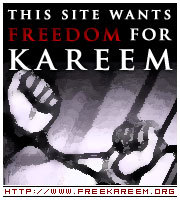A Musharraf-Bhutto Deal in the Offing?
With Musharraf ordering the winding up of an anti-corruption cell that was dealing with cases against Benazir Bhutto and her husband, speculation is rife about a potential deal between the two.
The increasing domestic political instability due to Pakistan's ongoing legal crisis has forced President Gen. Pervez Musharraf to accelerate back-channel dealings with the main opposition group, the Pakistan Peoples' Party Parliamentarians (PPP-P), led by former Prime Minister Benazir Bhutto.
Musharraf's dire need to gain control of the jihadists could bring the president and Bhutto closer to an agreement, especially given that they are more or less on the same ideological page regarding Islamism and jihadism. The two have been holding behind-the-scenes talks for almost three years. One of the reasons these discussions have produced no results is that accepting a president in uniform would be a deadly political blow for the PPP-P, which stands to lose its support should it go against its historic role as the anti-establishment political party. The party also does not want a deal under which it merely replaces Musharraf's main civilian ally, the ruling Pakistan Muslim League (PML). In other words, PPP-P is looking for a certain degree of power. However, Musharraf is only working with the party in order to secure his own political position. Hence, a deal that undercuts his authority is a nonstarter -- something Bhutto knows well. The former prime minister also understands that, just as Musharraf needs her to help sustain his hold on power, she must work out a deal with him in order to stage a political comeback. This means each will have to compromise. While the idea of Musharraf remaining military chief is unthinkable for the PPP-P, a deal under which Musharraf retains a considerable degree of power as the civilian president and Bhutto serves as prime minister -- with more authority than the current prime minister enjoys -- might be acceptable. While Musharraf will not want to give up his position as military chief -- the source of his strength -- the political crisis in the country has made it clear that clinging to this title could weaken his hold on power. Given what is at stake for both sides, a deal under which Musharraf -- as a civilian president -- acts as a balancing force between parliament and the military is not out of the question. In the past, Bhutto and her PPP-P have headed governments in which the military had oversight over the civilian administration and the civilian president had the power to dismiss the Cabinet and parliament. A slightly altered version of this, wherein a PPP-P-led government exercises more power than it has during its last two stints in office, is possible. There obviously are many details that still need to be worked out; most important is what will happen to the ruling PML if Musharraf and the PPP-P strike a deal -- an issue Stratfor first discussed some two years ago. While the country's growing political and security instability has forced Musharraf and the PPP-P to become more pragmatic, it has done the same for the PML. The party, which has opposed a Musharraf-Bhutto deal for fear of losing its political position, now is entertaining the idea of forming a coalition government with the PPP-P and other like-minded groups -- along the lines of the left-center-right governments in Germany and Israel. It is too early to say whether such a deal can be worked out, especially given the number of moving parts on Pakistan's domestic political scene. But it is certain that -- regardless of such a coalition's configuration -- Washington would certainly favor an option that unites the establishment and the mainstream opposition. From the U.S. point of view, such a setup would balance the need for change with the need to maintain continuity, and hopefully allow the country to move past the current crisis and focus on fighting the jihadists.[Stratfor] |






No comments:
Post a Comment